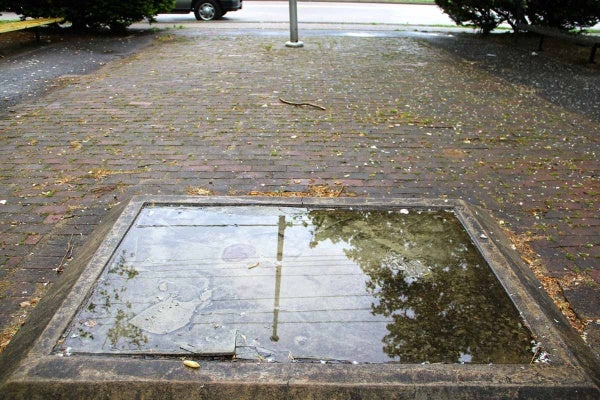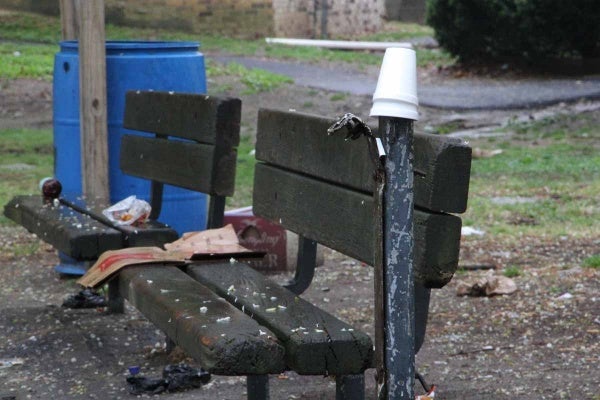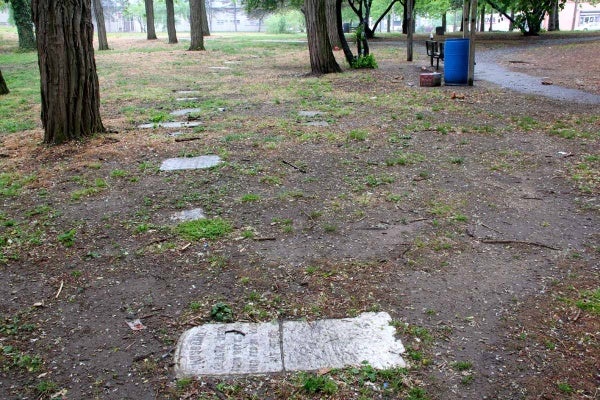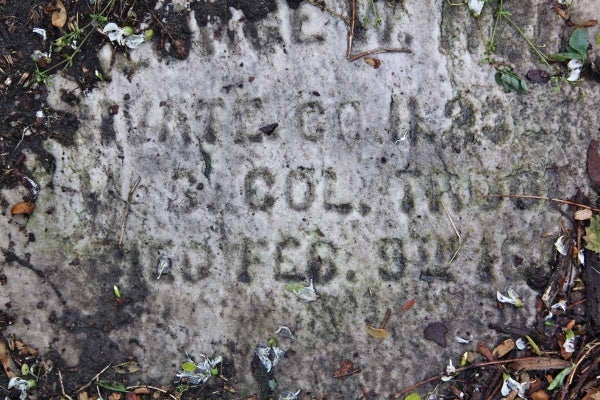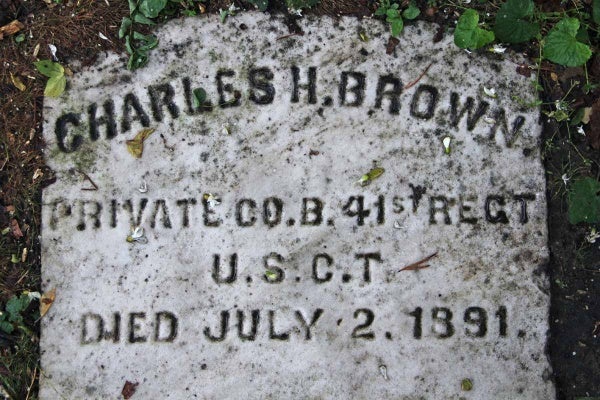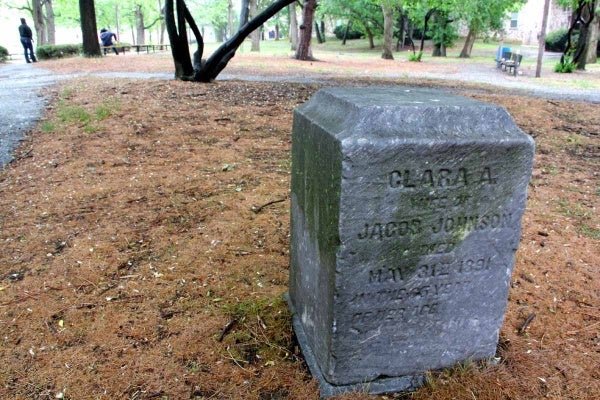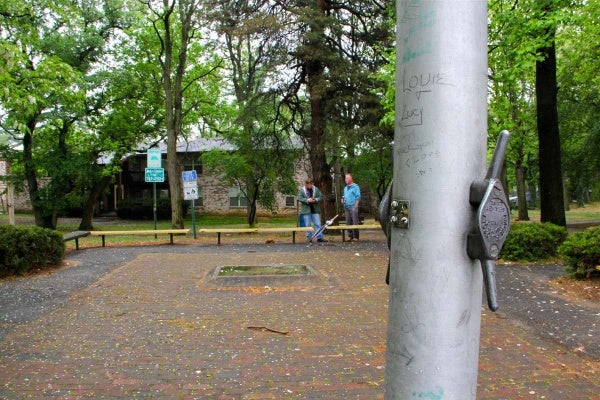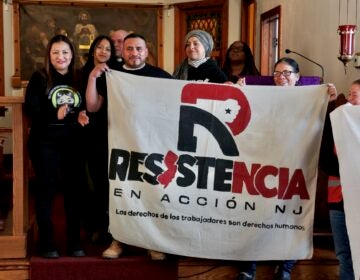Attorney rallies support for forgotten Camden cemetery where black Civil War soldiers lie
Two years ago, students from Woodrow Wilson High School in Camden cleaned up what they thought was a local park as a community service. As their rakes scratched headstones, however, they were surprised to find that Johnson Park Cemetery was more cemetery than park.
Their discovery caught the eye of Collingswood lawyer Kevin Walker who featured Johnson Park Cemetery in his first documentary, “The Lonely Bones.”
Walker said that he first learned about the cemetery when he saw a small article about the students’ surprise find. “It got me interested in the site itself,” Walker said. After talking to local historians, he realized “it wasn’t just any cemetery.”
Set on three acres in East Camden, Johnson Park Cemetery was Camden’s first black cemetery and the final resting place of between 250 and 300 former residents. Approximately 120 of the graves are attributed to members of the U.S. Colored Troops, who fought for the Union Army in the Civil War following the 1863 Emancipation Proclamation, Walker said.
In 1978, most of the headstones were still upright, said Walker. Due to the “general deterioration of the cemetery,” a decision was made to convert the space into a park. The graves were not moved, only the headstones, which were embedded in a decorative pattern in the ground.
Walker says the effect of this change was that the space “lost its character as a cemetery.” Bad weather cast leaves and dirt across the embedded headstones and without the characteristic upright markers, trash and other debris began to collect as well.
Over the course of the past two or three decades, the local community “forgot its historical significance,” Walker said.
Walker was so inspired by the forgotten history of Johnson Park Cemetery that he knew it had to be the feature of his first documentary.
At the time, Walker said he barely knew how to operate a camera. He watched a lot of tutorials on YouTube and bought supplies from eBay.
The documentary was really a “training exercise,” he continued, but he was pleased with the finished product and decided it was worth submitting to film festivals.
“The Lonely Bones” was accepted by the Garden State Film Festival in Asbury Park. Though it was shown at one of the smaller venues, a full house packed in for the viewing last month.
The documentary was also chosen by the New Hope Film Festival in Bucks County and will be shown as part of their lineup this summer.
Recently, Walker received a call from Delbert Nelson, commander of Camden’s American Legion post who told him that the post, which has over 100 active members, was planning to adopt the cemetery with the help of Camden’s Mayor Dana Redd.
“I’m pretty excited about that,” admitted Walker. With the 150th anniversary of the Civil War coming up this fall, “the timing is just right … to organize the community.”
The park is going to need long term maintenance, he explained. In many cases, the families of the deceased care for these types of small, community cemeteries.
Though it was “beyond the scope of his documentary,” Walker is hopeful that someone will step forward to do a genealogical study to determine if any of the buried people still have descendants in Camden who might be willing to maintain the site.
Nelson agreed that the cemetery will need continued maintenance. The Legion post hopes to contribute to its upkeep and memory. The city council is forming a Veterans Advisory Council and their “kickoff point” will be to lay a wreath at Johnson Park Cemetery, said Nelson.
He explained that Redd recently went through the cemetery and identified 20 tombstones. They were “not in bad shape,” Nelson said, so they are going to try to do something with them. The mayor is “100 percent behind everything,” he said.
Though Walker said he has not decided what he would like to do with potentially distributing the film, he wants it to show the “necessity of engaging the community.” He hopes that he will be able to screen it at Rutgers-Camden this fall as part of their ongoing discussion of civic engagement.
WHYY is your source for fact-based, in-depth journalism and information. As a nonprofit organization, we rely on financial support from readers like you. Please give today.




